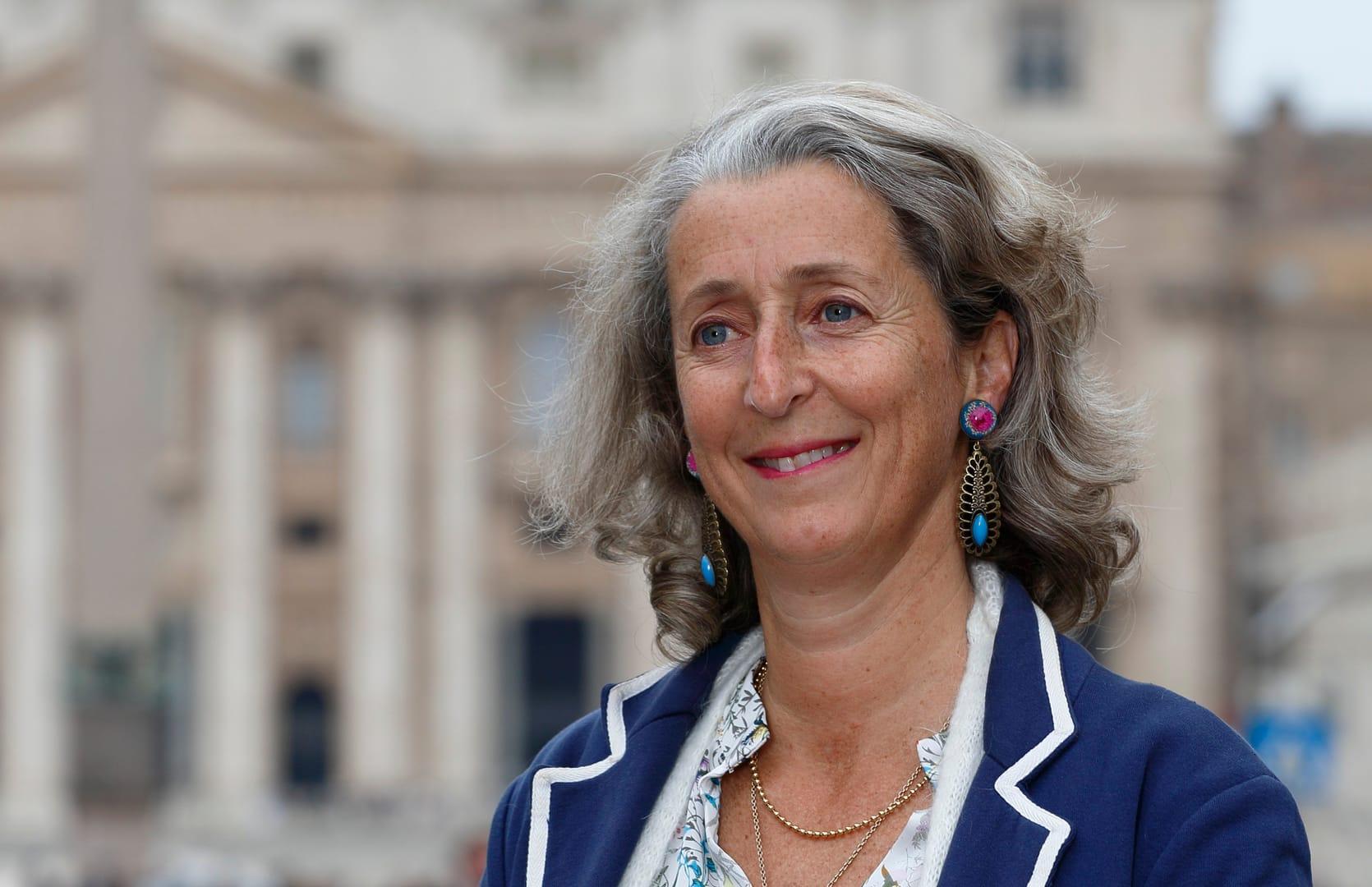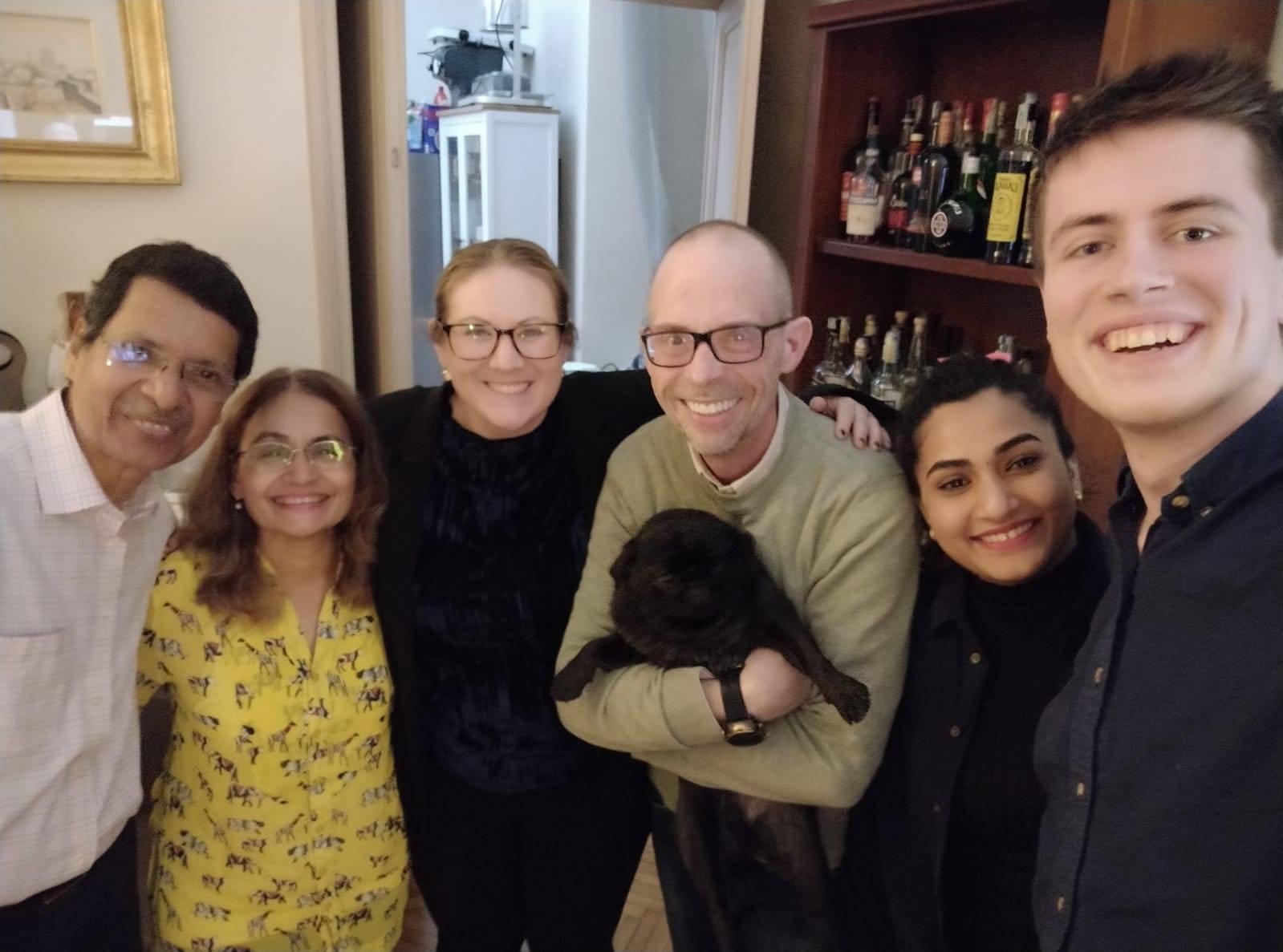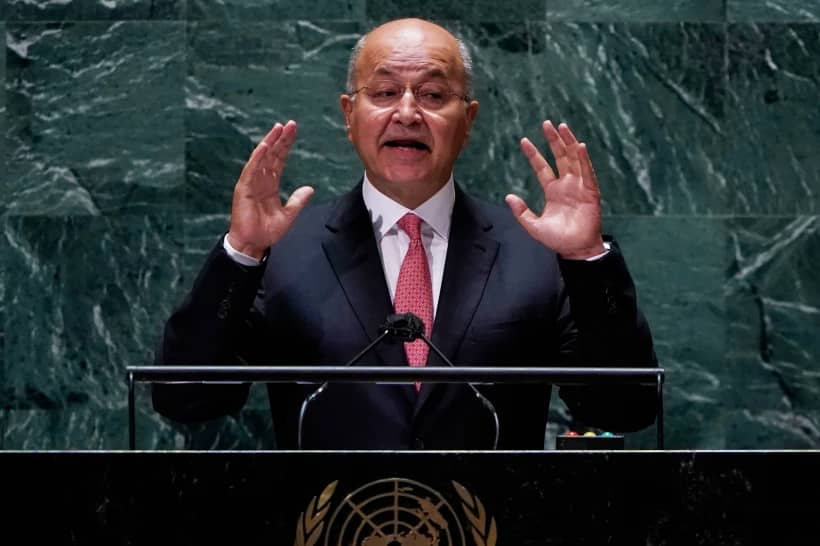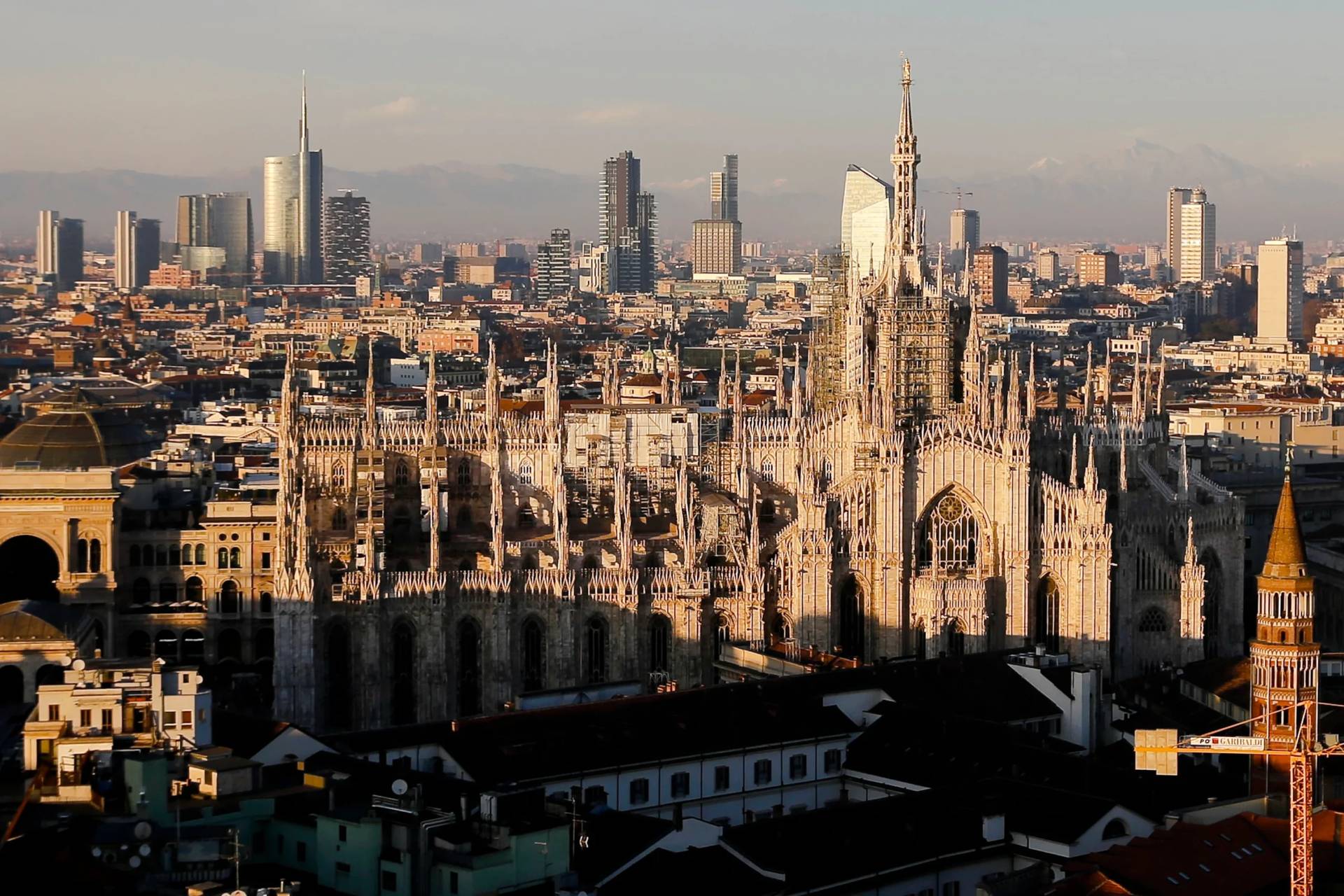ROME — One of the most important “servants of life in the world” was the late French geneticist, Jérôme Lejeune, who dedicated his “scientific genius” to serving children with Down syndrome and their families, said the woman officially promoting his sainthood cause.
He was also “a servant of charity,” showing an unconditional love that was rare at the time for these born and unborn children who were at risk of abortion, said Aude Dugast, the postulator of his cause for canonization and the author of a new biography about his life.
Dugast spent 14 years conducting research, doing interviews and compiling evidence for Lejeune’s cause, which advanced in early 2021 when Pope Francis recognized Lejeune lived a life of heroic virtue and declared him “venerable.” The confirmation of a miracle attributed to his intercession will be needed for the next step in the process, beatification.
She turned that extensive study into a book just published by Ignatius Press, titled “Jérôme Lejeune: A Man of Science and Conscience.” In it she outlines the life and work of the French pediatrician and world-renowned geneticist, who contributed to the discovery of the cause of Down syndrome, staunchly opposed abortion and tirelessly supported his “tiny patients” and their families.
Working with others, Lejeune found evidence in 1958 that the physical and intellectual impairments of Down syndrome or Trisomy 21, were caused by an extra copy of chromosome 21.
This “was a revolution for the family,” Dugast told Catholic News Service in Rome Oct. 26, because, up until then, people believed the birth of a child with this impairment “was the end of the world.”
People often thought Down syndrome represented some kind of sin, punishment or imperfection in the family, which could lead to the child being hidden from public view or siblings not getting married because it was feared their children would be born with the same condition, she explained.
Finding a scientific explanation erased the superstition, but not always the stigma, that is, until the families met with Lejeune, she said.
Dozens of mothers who had taken their children to Lejeune told Dugast that encounter was the first time they had met anyone who looked at their child with love and not with disgust or embarrassment.
He showed “so much love it was as if he had before him a prince or Christ on the cross or, another (mother) told me, ‘He looked at my child as if he had the eyes of Christ,'” Dugast said.
He would hold and play with the child and speak humbly and truthfully to the parents in an uncomplicated way that somehow transformed them, giving them “a new strength” and a feeling they were no longer alone in the world, she said.
He was unable to find a cure for the condition, but he did “cure the hearts of the parents and child,” she said. The Jérôme Lejeune Foundation continues with his research, care and advocacy with a medical center specializing in Down syndrome in Paris and, since March 2021, in Denver.
Lejeune could have pursued fame and fortune at any one of the many universities and laboratories that wanted him, Dugast said, but, instead, he fully dedicated himself to offering medical care and support to these children, especially as prenatal testing became more common, and abortion was legalized.
He was like “a fourth Wise Man,” offering his gifts of intelligence and medical and scientific know-how to a vulnerable child who “was waiting for him,” she said.
Lejeune believed funding, research and time was better spent on finding a cure and better care for these children rather than using the field of medicine to kill the patient when a cure could not be found, she said.
“When you kill a patient, you’re also killing hope, the hope in medical science,” she said.
“His holiness is founded on love … and his intelligence,” Dugast said.
Sometimes people think “to be a good Christian or a saint we have to set our intellect aside a bit, that it is enough to believe, and we don’t need intelligence in order to believe,” she said.
Instead, “faith is intelligence orientated toward the truth,” and he firmly believed one could “rehabilitate faith and science,” she said. If there were any contradictions between faith and science, he believed all one had to do was wait for science to find more or new evidence and it would eventually find out what was true.
In addition to numerous awards and honors from around the world, St. Paul VI named him a member of the Pontifical Academy of Sciences in 1974. He became a great friend of St. John Paul II, who supported his effort to have science serve and defend life and named him president of a newly created Pontifical Academy for Life. Lejeune was able to serve as president only for a few weeks before he died on Easter day in 1994.
In a message marking his death, St. John Paul said Lejeune was “a great Christian of the 20th century, a man for whom the defense of life became an apostolate” — a form of lay apostolate that is “particularly necessary” in the world today.
Dugast said Lejeune’s holiness developed over his career as he continually and courageously spoke out very publicly in defense of human life based on his faith, on what science knows and on his Hippocratic Oath as a physician — to do no harm.
“His is a simple holiness,” she said, because, in essence, he just “took the Gospel seriously.”
“The Gospel says, love unconditionally every person who has the same worth in God’s eyes,” and that is exactly what he did, she said.














